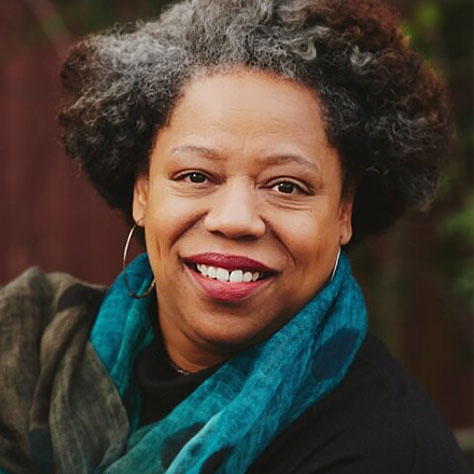
Andrew Lofton and Kimberly Wilson—Arcora Foundation board members—share the importance of good oral health for Black people.
Black history is U.S. history.
Each February, Black History Month allows time to reflect on Black people’s contributions to our country. Medicine, science, civil rights, politics, business, the arts—Black voices have added to and advanced the richness of our country. Arcora Foundation celebrates the integral role of the Black experience in U.S. history.
Oral health is overall health.
Just as Black history is U.S. history, oral health is overall health. Arcora has taken intentional steps to improve oral health outcomes for Black people. We’re deepening relationships with Black communities across Washington state and the organizations that serve them. Our partners share our view that good oral health is good overall health. But data show that Black, Indigenous, and people of color face barriers to good oral health. Arcora’s 2022-2024 strategic plan details our plan to bend the arc of oral health toward equity through our prevention and access work.
This Black History Month, our Board of Trustees Chair Andrew Lofton and Board Member Kimberly Wilson reflect on their involvement with Arcora and the importance of oral health for Black people.

Andrew Lofton
“Black people have opportunities for advancement in so many areas in our society. Oral health is one of them. Good oral health is just one of the building blocks for good overall health. Poor health outcomes have implications for Black people in all walks of life. Those poor outcomes can be debilitating, expensive, and create additional barriers for Black people to reach their goals.
“I became interested in Arcora Foundation because of their work to expand access—especially for BIPOC populations. I first learned about Arcora while I worked at the Seattle Housing Authority. At the time, the Authority was exploring ways to support families that are low income achieve better overall health outcomes. I discovered Arcora’s work to increase access to oral health care, its emphasis on underserved populations, and the role oral health care plays in good health outcomes.
“Good oral health means opportunities to treat problems and diseases before they become significant health issues. It also means access to quality oral health whether you have insurance or your ability to pay. From my work at the Authority, I was acutely aware that low-income families and communities are often disproportionately denied access and opportunities to services that affect their overall health. Arcora was and continues to be an organization working to change that. Arcora centers its work in equity to achieve good oral health for everyone.”
Andrew Loften is the active Arcora Foundation Board of Trustees chair. He served as the Executive Director of the Seattle Housing Authority from 2012 until his retirement in 2021.

Kimberly Wilson
“As an African-American woman who grew up without fluoridated water, and whose grandparents had lost several of their teeth before I was born, oral health is really important to me.
“Those with the least access to preventive services and dental treatment have the greatest rates of oral disease. Education level, income, ethnicity are all reflected in oral health access statistics but race is especially acute: African Americans have some of the poorest oral health outcomes of any racial or ethnic group in the U.S. The numbers tell a grim story:
- Which children experience the greatest disparity with tooth decay in this country? African Americans.
- Which group has a higher prevalence of periodontal disease than almost all other racial groups? African Americans.
- Among Americans aged 20-65, which racial/ethnic group experiences untreated tooth decay at nearly twice the rate of white Americans? And which seniors suffer total tooth loss at almost double the rate of white individuals over age 65? Again, Black Americans.
- The five-year survival rate among white American men diagnosed with oral pharyngeal cancers is 61 percent. For Black men, the rate is just over half of that, at 36 percent.
“These outcomes have a real cost on our socio-emotional and psychological health, along with our general wellbeing. Two in every five middle-aged adults in the U.S. report that dental issues result in pain, eating problems and missed work. For little ones, oral health issues can keep them home from school or unable to participate fully.
“Joining Arcora’s Board of Trustees was meaningful to me because these outcomes impact the quality of life for members of my community. Arcora’s approach to advancing oral health in Washington through equity makes sense. Moreover, it helps to change outcomes for the most vulnerable communities, including mine.”
Kimberly A.C. Wilson is the Executive Director of Hedgebrook, a literary nonprofit whose mission is to support visionary women writers whose stories and ideas shape our culture now and for generations to come.
Want to deepen your understanding of Black people’s contributions to U.S. history? The Association for the Study of African American Life and History—which also describes how Black History Month came to be and lists themes for each year—is a good place to start.
We can’t do this work without you. Advancing oral health requires public and private partnerships, policy advocacy, and funding. Join us in our mission to bend the arc of oral health toward equity. Learn more and contact us at info@arcorafoundation.org.
